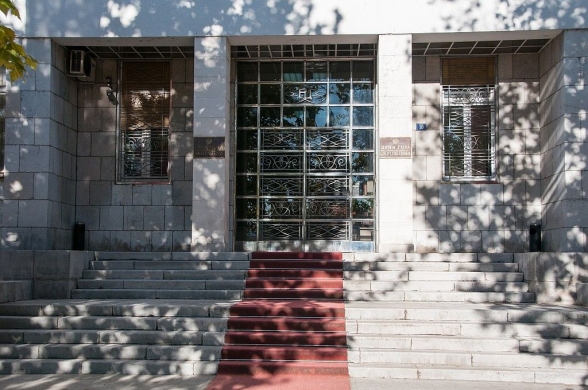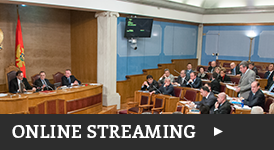The Parliament of Montenegro, in accordance with the announcement of the President of the Parliament of Montenegro, Mr Ranko Krivokapić, at the Eighth - Special Sitting of the First Ordinary (Spring) Session in 2015, held on 26 June 2015, drafted the Analysis - Information on long-term lease agreements and concessions decided on by the Parliament of Montenegro on the proposal of the Government for the period 2006 – 2015.
Bearing in mind the numerous false statements which had previously been publicised, in which the Parliament of Montenegro was indicated as obstructionist of development projects proposed by the Government, we hereby state that the Analysis showed that in the reporting period six proposals for agreements were endorsed and two rejected, out of the eight in total.
In addition to this, we specifically pointing out the fact that by 31 July 2015, the Parliament of Montenegro did not reject any proposal for a long-term lease agreement and concessions, and that only on 31 July majority of MPs rejected two such agreements.
The Analysis also showed indisputable the fact that the Government of Montenegro did not in any case respect its strict and elementary obligation from the Parliament's decisions stating that "the Government of Montenegro should deliver once a year (at the end of the fourth quarter) to the Parliament of Montenegro the report on realised investments for the current year.
The fact that the Government of Montenegro had ignored its obligation to report to the Parliament on the implementation of investment commitments arising from concluded agreements, prevented the Parliament from following the dynamics and degree of compliance with the contractual obligations to which the Parliament had given its approval, thus excluding the Parliament from the process of control and information, and disavowing its oversigh role.
In this context, we especially emphasize the attitude of the Resolution of the European Parliament from 2015, in which the Government was called on to "improve the access to the necessary information for the Parliament."
The Analysis also showed, citing the report of the State Audit Institution on the audit of performance of the Secretariat for Development Projects "Monitoring the status and dynamics of investment projects" of July 2014, that there was overlapping of responsibilities of institutions at the stages of planning, calling tenders and monitoring of the implementation of the investment project.
On the other hand, when it comes to supervision, control and monitoring of the implementation of the concludd agreements, competence of the majority of these institutions was not clearly defined, according to the report of the State Audit Institution, which would include the tasks of monitoring the dynamics of implementation ofi nvestments and reporting system, which leads to an inadequate performance of the oversight – control functions of the state.
This clearly concludes that there existed with the executive power an inefficient system of monitoring of the status and dynamics of implementation of investment projects, which deprives the state of Montenegro of the key lever of effective oversight when it comes to implementation of the realisation of contractual obligations by investors, paving the way for potential damage to the state interests in the very important area of the capital state resources management.
It is clear from the Analysis that there existed no problem in the state system that prevened any development projects from happening, but that there is a serious problem of disregarding the role of the Parliament of Montenegro, while at the same time violating obligations of the Government on regular reporting to the Parliament on contractual obligations, and that there existed a problem of a defective system in the very executive branch of power, concerning the supervision of contractual obligations by that branch of power.











